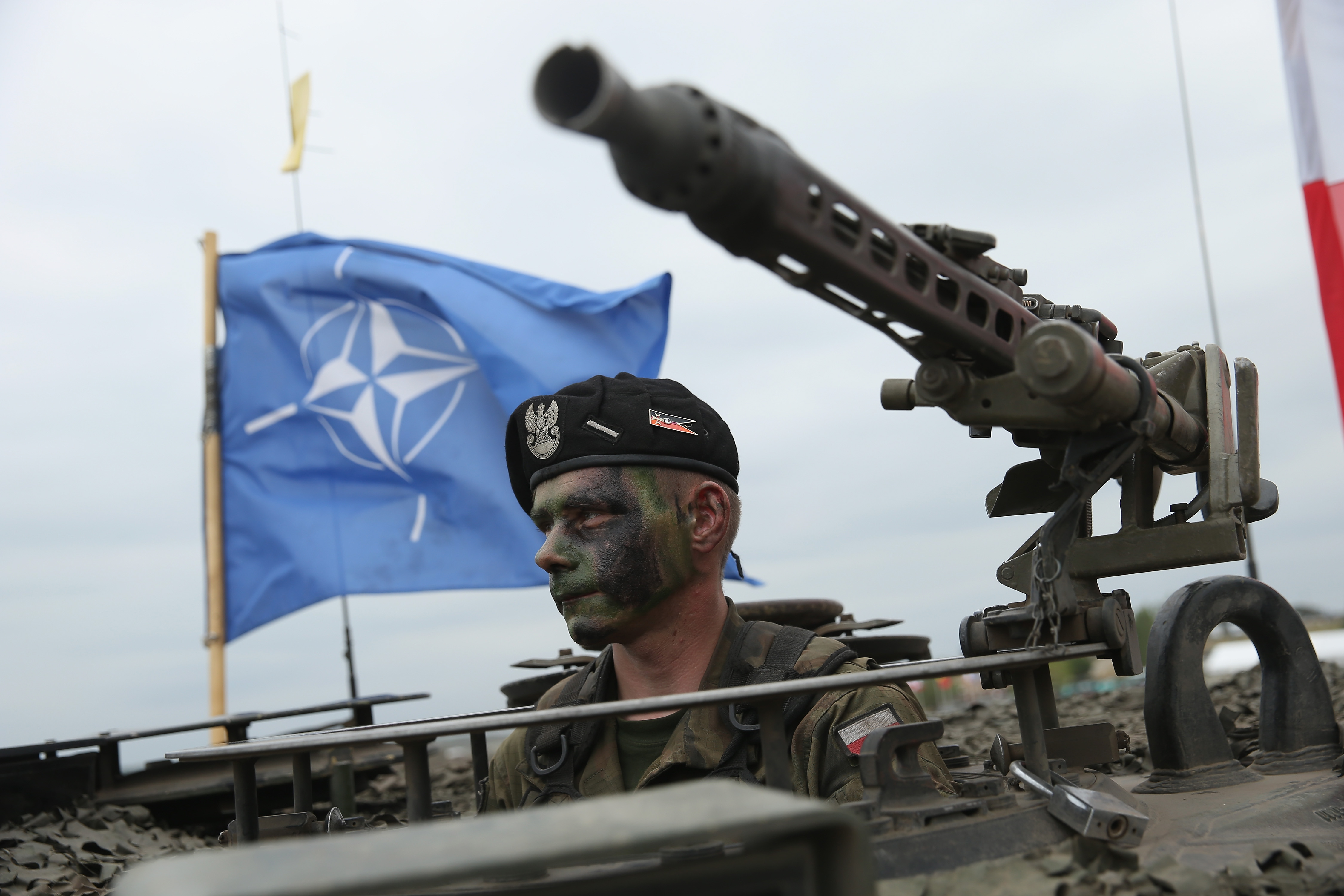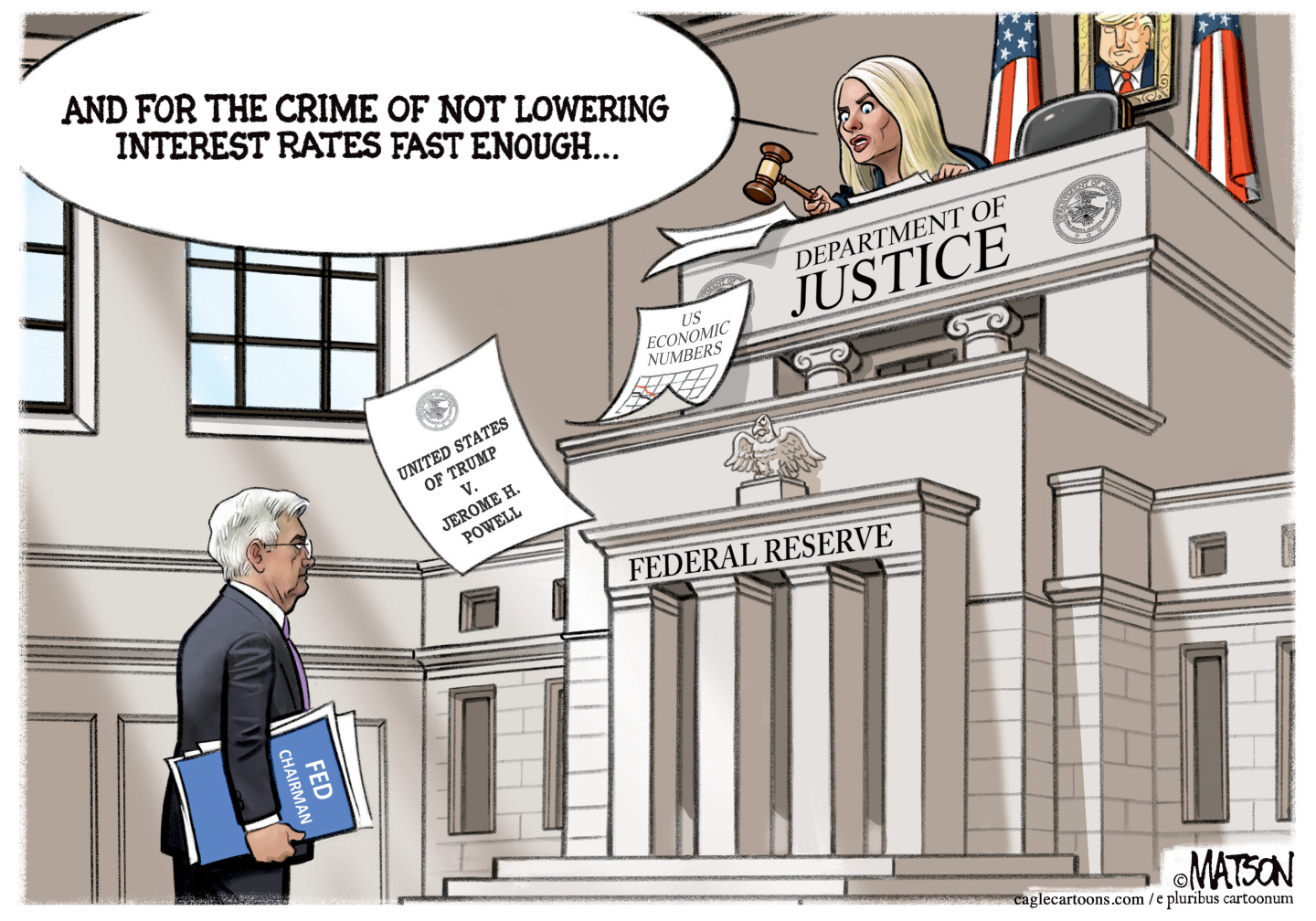Why Russia has NATO on the ropes
A new poll shows that majorities in critical member states would no longer fight for one another. This is a big problem.

A new survey of German attitudes towards security paints a grim picture for Europe. According to the survey, a majority of Germans oppose assisting their neighbors in case of Russian attack. The results mirror those in other countries, and begs the question: Is the North Atlantic Treaty Organization dying?
The survey, conducted by the Program for the Future of Europe and the Polish Institute of Public Affairs, reported that more than half (57 percent) of Germans polled do not support sending the German military to defend other NATO members "such as Poland or the Baltic states." Only 31 percent of Germans believe their country should fulfill its treaty obligations and assist those countries if attacked.
Poland and the Baltic states — Lithuania, Latvia, and Estonia — have been under heavy Russian political and military pressure to uncouple from NATO and the West. Russian revanchists view all four countries as traditionally buffer states that shield Russia and would like them to revert to that status.
The Week
Escape your echo chamber. Get the facts behind the news, plus analysis from multiple perspectives.

Sign up for The Week's Free Newsletters
From our morning news briefing to a weekly Good News Newsletter, get the best of The Week delivered directly to your inbox.
From our morning news briefing to a weekly Good News Newsletter, get the best of The Week delivered directly to your inbox.
According to the report, Germany isn't an isolated case. Fifty-three percent of the French are against defending Poland and the Baltics, as are 51 percent of Italians.
The North Atlantic Treaty Organization (NATO) was created in 1949 to help defend Germany and other front-line states from resisting Soviet aggression. Key to NATO was the concept of collective defense — that in the event of a presumably Soviet attack, each member state would rush to the aid of any member state. NATO's informal slogan was "an attack on one is an attack on all."
The great thing about collective defense is that it greatly magnifies the ability of small states to resist large states. Germany, for example, would not have to arm itself to take on the entire Soviet military — it could rely on the help of other nations such as France, Belgium, the Netherlands, the United Kingdom, and even the United States.
The Achilles' heel of collective self defense, however, is that when people don't believe in it anymore, it effectively no longer exists. NATO, it seems, has reached that tipping point.
A free daily email with the biggest news stories of the day – and the best features from TheWeek.com
In the meantime defense spending among NATO nations has plummeted, with few countries spending the alliance-recommended 2 percent of GDP on defense. In 2015, Germany spent just 1.2 percent, Italy less than 1 percent, and France 1.8 percent. The United States, by way of example, spent 4.6 percent.
All of this is coming at a time of resurgent Russian military and political power. Since Vladimir Putin's regime annexed Crimea and launched a shadow war in eastern Ukraine, the Russian military has begun a campaign of intimidation against its neighbors, including NATO, Sweden, Finland, and even Japan.
The results of the survey suggest that Germans in particular are more interested in cooperating with countries to their West — such as the Netherlands, the U.K., and even China — while less interested in cooperating with countries to the East, such as Poland, the Ukraine, and the Czech Republic. The implication that Germans want to avoid confrontation with Russia is clear.
The attitude that Poland and the Baltic states are not worth fighting over persists despite Russia's recent aggression against Ukraine, and despite the campaign of intimidation against other states. It persists despite numerous examples from history — the worst of which occurred in Europe itself — where aggressive, expansionist states that were not confronted early on became major threats to the security of the entire continent — and indeed the world.
Another major campaign of aggression by Russia — perhaps even aimed at the alliance itself — could reverse attitudes. Pearl Harbor, for example, quickly reversed a deeply ingrained isolationist sentiment in the United States. Like Pearl Harbor, that would almost certainly involve tragedy that in hindsight will be seen as having been avoidable.
Russian aggression could even harden attitudes against collective self-defense even more, with the same majority seeking the path of least resistance, accommodation with Russia. It all depends of what costs Russia decides to impose — and whether they're too much to bear. And the Russia that was too smart to invade Crimea outright will be too smart to drive any of its potential adversaries to desperation.
The alliance can survive falling defense spending. That's reversible. What NATO can't survive is public opinion opposing its core mission.
NATO's armies, plans, and leadership structures still exist, but without public support for using them they're a false promise to countries like Poland. NATO is an alliance that, behind the facade, is deeply fractured. It may even be already dead. The only way to find out is to test the alliance in a true crisis — and there's a good chance that will happen within our lifetimes.
Kyle Mizokami is a freelance writer whose work has appeared in The Daily Beast, TheAtlantic.com, The Diplomat, and The National Interest. He lives in San Francisco.
-
 Why Greenland’s natural resources are nearly impossible to mine
Why Greenland’s natural resources are nearly impossible to mineThe Explainer The country’s natural landscape makes the task extremely difficult
-
 The Week contest: Post-surgery Spanish
The Week contest: Post-surgery SpanishPuzzles and Quizzes
-
 Political cartoons for January 14
Political cartoons for January 14Cartoons Wednesday’s political cartoons include Jerome Powell's rap sheet, holiday bill blues, and more
-
 Why Greenland’s natural resources are nearly impossible to mine
Why Greenland’s natural resources are nearly impossible to mineThe Explainer The country’s natural landscape makes the task extremely difficult
-
 Iran cuts internet as protests escalate
Iran cuts internet as protests escalateSpeed Reada Government buildings across the country have been set on fire
-
 US nabs ‘shadow’ tanker claimed by Russia
US nabs ‘shadow’ tanker claimed by RussiaSpeed Read The ship was one of two vessels seized by the US military
-
 How Bulgaria’s government fell amid mass protests
How Bulgaria’s government fell amid mass protestsThe Explainer The country’s prime minister resigned as part of the fallout
-
 Femicide: Italy’s newest crime
Femicide: Italy’s newest crimeThe Explainer Landmark law to criminalise murder of a woman as an ‘act of hatred’ or ‘subjugation’ but critics say Italy is still deeply patriarchal
-
 Brazil’s Bolsonaro behind bars after appeals run out
Brazil’s Bolsonaro behind bars after appeals run outSpeed Read He will serve 27 years in prison
-
 Americans traveling abroad face renewed criticism in the Trump era
Americans traveling abroad face renewed criticism in the Trump eraThe Explainer Some of Trump’s behavior has Americans being questioned
-
 Nigeria confused by Trump invasion threat
Nigeria confused by Trump invasion threatSpeed Read Trump has claimed the country is persecuting Christians